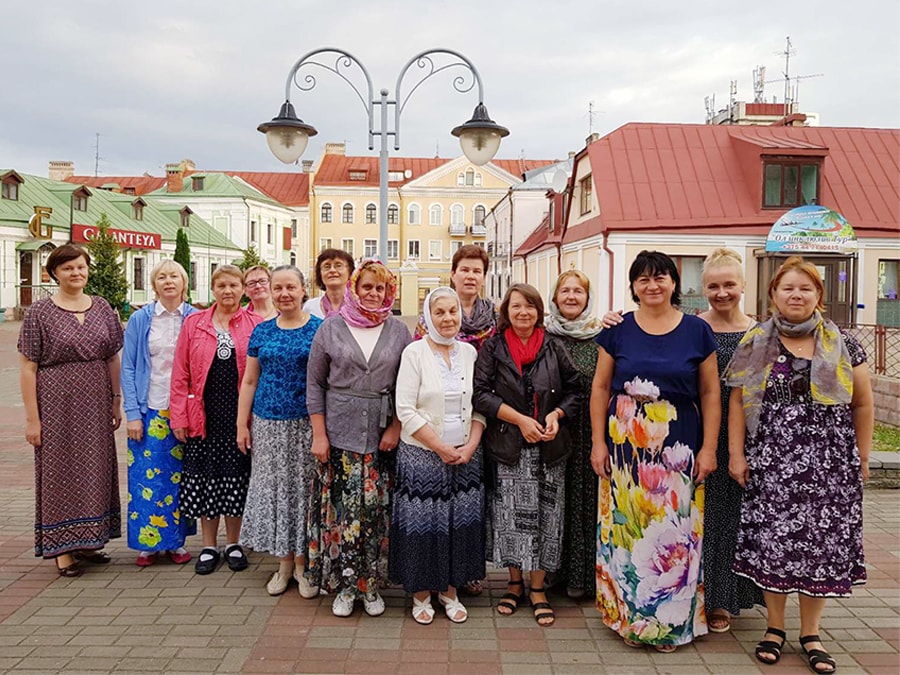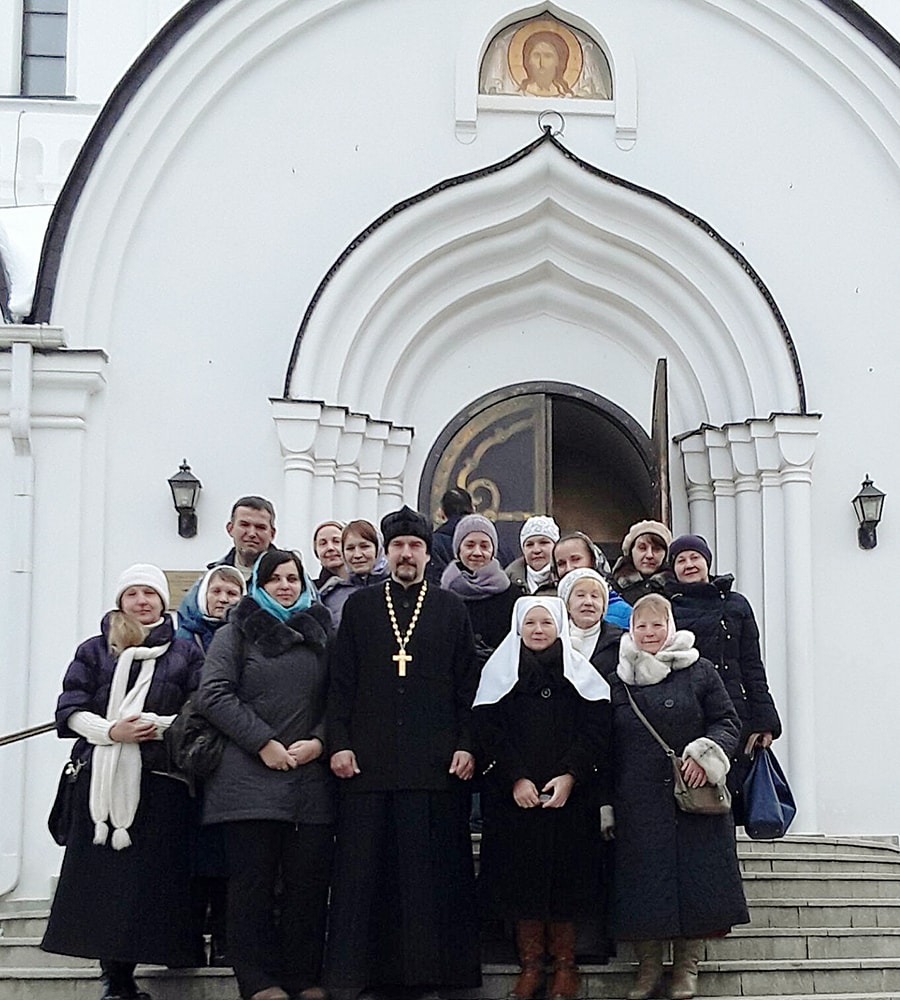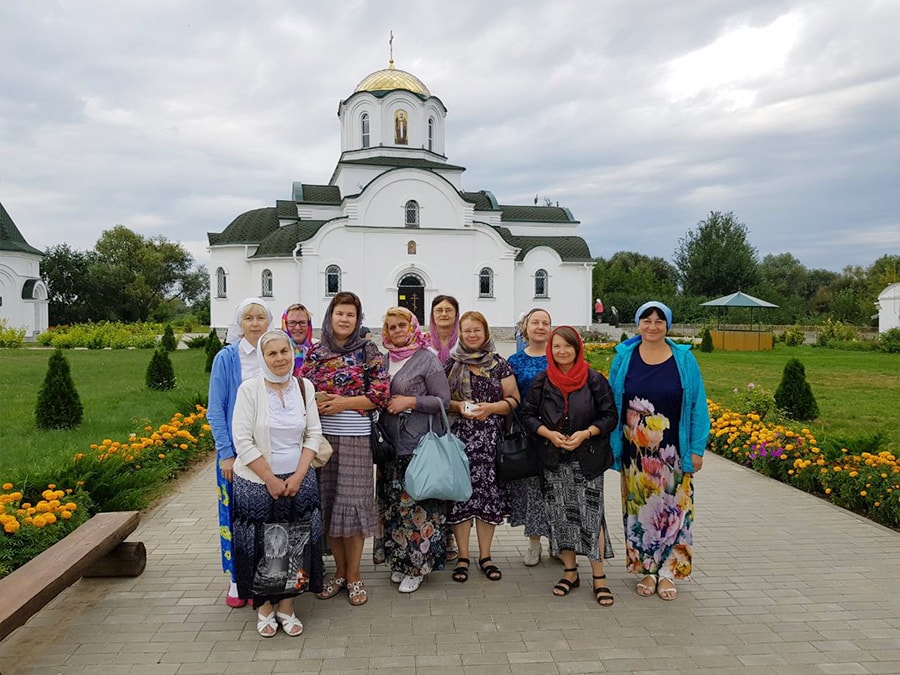
“It is not easy to find happiness in ourselves, and it's not possible to find it elsewhere.”
Agnes Repplier
It is Thursday evening. After reading the Akathist to the Icon of the Mother of God "Inexhaustible Chalice", the members of the self-help group "gather around a large table on the attic floor of the Church of Saint John of Shanghai and San-Francisco for a group session.
One of the participants reads out the ground rules. Rule number one: being non-judgemental. No member may make belittling, or critical comments with regard to anything said around the table by any other member.
Tatyana, the group’s organiser and coordinator explains: “We are an open group. Co-dependence is essentially grounded in manipulation. We do not give direct advice unless someone specifically asks for it. In most cases, however, you can gain more by listening to others' stories than by telling your own. Many will take a very defensive attitude, in the beginning, trying to protect themselves from their pain by denial. But nobody expects an immediate result; successful healing is always a journey.”
The group is based at the Convent. All of its participants acknowledge the importance of being a part of church life and of taking the sacraments of confession and the Eucharist. All realise that they can get a reprieve from their afflictions by talking them through, but only Christ can heal them. They are healed by following the way of Christ. A professional psychologist acts as a resource for the group, and Archpriest Dimitrius Basalygo provides spiritual guidance. The participants attend talks by the Convent's spiritual father Andrey Lemeshonok and attend worship services. Some have joined the Convent's lay sisterhood to contribute to its ministries.

Today, three newcomers have volunteered to share their stories, and to confide in the others their life stories, their afflictions and hopes. All the others listen. Each has travelled their own bath towards overcoming their fears and opening up to others. For all those who are listening the challenge is to give support without letting oneself regress into the tormented state of the narrator, to help the other participant overcome self-pity and the desire to lay blame on others, and to help him find ways to regain at least a partial control of the situation. Also important is to be able to share with others one's own experience in overcoming adversity without letting their hearts harden.
As the meeting unfolds, one begins to get answers to many of the questions. We become co-dependent when we have expectations of the life of our loved ones or of our relationships with them that are not met, and we attempt to attempt to have them met through control, often disguised as love and care. Co-dependence may be present in relationships between spouses, or we may become too controlling of our elderly parents out of concern for their health. The relationship between parents and children may also be marred by co-dependence and the accompanying feelings of anxiety, guilt and shame - especially when the children make life choices that are different from their parents' preferences. We try desperately to put things right, by mounting the pressure and strengthening control, only to make our situation still worse. Eventually, we become enmeshed in the vicious cycle of co-dependence and control, and end up losing control of our own lives.
Our biggest mistake is in having too little faith, and in failing to put our trust in the Lord. We forget that every person is endowed by free will and the love of God. At this point, our care for our loved ones transforms into control. Control gives us false reassurance, but robs us almost completely of our own autonomy and freedom to pursue our own goals. Co-dependence is a form of passion that overshadows all of our other natural interests, such as health, hobbies, and friendships. Worse still, our loved one shows no appreciation for our self-sacrifice, and starts to rebel. The harder we control, the worse our situation becomes, and the more our relationship suffers.
How can we help ourselves? First, take a step back. Realise that our passion and over-involvement are unwise. Reconsider our wants and preferences, and free ourselves from our feelings of guilt. Learn to be thankful to God for what we have. Reconsider our expectations and demands from ourselves and others.  Learn to draw boundaries and make distinctions between our own areas of responsibility to our families, significant others and to God and those of our loved ones. Avoid making important decisions for them, give them the freedom of choice, and avoid second-guessing or criticising their choices afterwards. Before giving them any advice, ask them if they want it. Give an opinion only when we are asked for it.
Learn to draw boundaries and make distinctions between our own areas of responsibility to our families, significant others and to God and those of our loved ones. Avoid making important decisions for them, give them the freedom of choice, and avoid second-guessing or criticising their choices afterwards. Before giving them any advice, ask them if they want it. Give an opinion only when we are asked for it.
Know the problems and limitations of our loved ones, and the extent to which they may be helped. Use judgement when responding to their requests. Just like people with diabetes should not be given sweets, people with dependencies should not be given anything that would aggravate their condition like giving money to an alcoholic. We might offer than food or a bus ticket, and we should not blame ourselves for being 'frugal'.
Codependence means loss of freedom and autonomy, and co-dependence happens when both parties do so. Co-dependence is a form of slavery - putting the life of another person before our own, without even asking for that person's consent.
How can we learn to help our loved ones in a healthy way? Tatyana, the group coordinator responds:
"It is hard to cure the dependency in someone who is intent on healing others, but not helping oneself. Recognising the problem and making the decision to deal with it is the first necessary step in any healing process. For a co-dependent, to heal means to regain responsibility for one's own life and to let their loved ones be responsible for theirs. For someone with a dependency, healing means to be responsible for one's own choices without shifting it to others when it feels convenient to do so.
The only way in which enablers and co-dependents may work together is in helping one another stay even-headed, and not exacerbating their passions. They should love the image of God in themselves and their loved one. They should pray for one another, and regain their wisdom. Healing is a long process.
Co-dependents should practise introspection; they should develop the capabilities to set their own life goals independently of others.
What do our loved ones try to gain from their abuse of alcohol or drugs? An illusion of joy and excitement. And a co-dependent? An illusion of being happy from the sobriety of their loved one. Both should learn to find pleasure independently of one another. Taking a step back and disengaging themselves will be the first thing to do. Both should ask themselves: What is it that I used to like before? What would I enjoy? - It would be a good idea to help someone who is in need, but in whom one does not have the same emotional involvement, and whom one does not place in the centre of their lives. One cannot keep one's spirit strong by amusements alone. It is also critical to be a part of church life, without completely separating oneself from the life of their loved one, especially if one lives together with him under the same roof. But it is important to set the limits, to learn not to violate the private space of another, without letting the other person invade your own personal space. One should learn to maintain honesty in the relationship, and a healthy partnership, - grounded in trust and respect, not fear and control, subject to the limitations of the other person's condition. And by all means, one should nurture one's relationship with the Lord.”